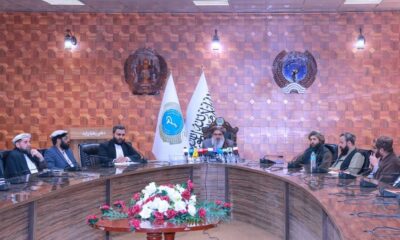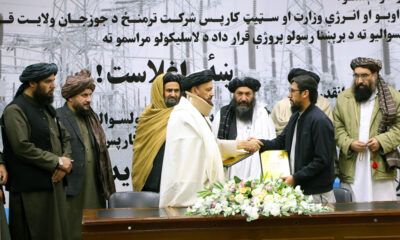Latest News
SIGAR report shows shortcomings in some US programs for Afghan women
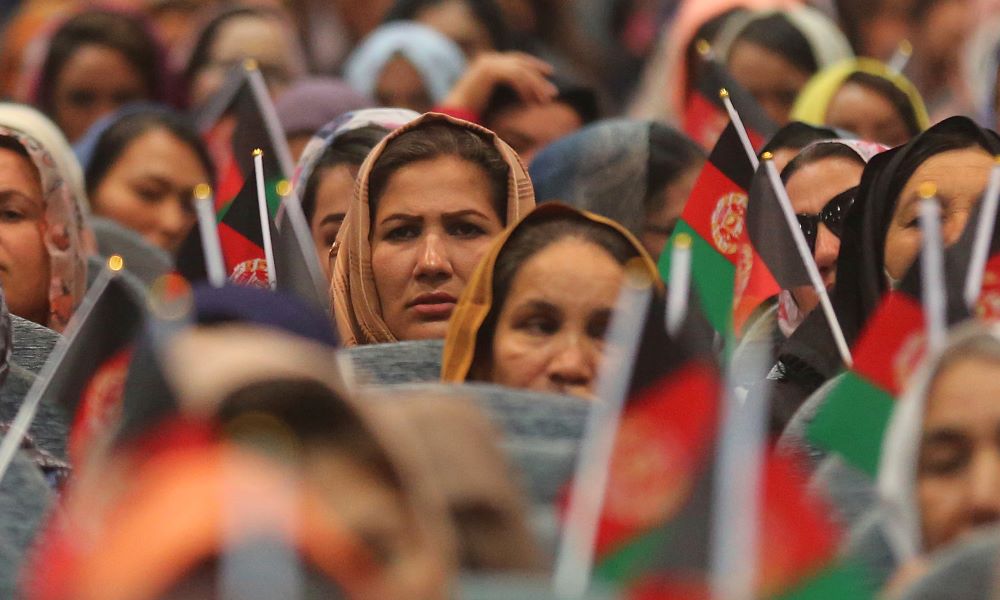
Special Inspector General for Afghanistan Reconstruction (SIGAR) stated in a report released Thursday that despite hundreds of millions of dollars spent on efforts to support Afghan women and girls since 2002, some programs were designed on assumptions that proved to be ill-suited to the Afghan context.
In the Lessons Learned report, SIGAR head John F. Sopko stated that the shortcomings were found in an examination of 24 US gender-related programs.
“Some programs were designed based on assumptions that proved to be
ill-suited to the Afghan context and the challenges that women and girls faced.
“We found that establishing a correlation between program activities and related outcomes was not always possible, and in many cases, insufficient monitoring and evaluation of program activities made it impossible to assess the programs’ actual impacts,” he said.
The report stated that it is critical that US officials working on or in Afghanistan develop a more nuanced understanding of gender roles and relations in the Afghan cultural context – and work to ensure that US policies and programs are responsive to this context.
“US agencies also need to assess how to support women and girls without provoking backlash that might endanger them or stall progress,” read the report.
Sopko however pointed out that despite some shortcomings the importance of US backing for Afghan women’s rights should not be underestimated.
Almost $800 million has been spent in direct support of Afghan women and enormous progress has been made since 2002, including in the fields of health care and education.
The report stated meanwhile that “US and international diplomatic pressure can be instrumental in advancing women’s legal rights and participation in public life – in politics, government, media, and civil society.”
The report also noted that educating Afghan men and boys about gender equality issues and working with them as partners and advocates are critical to advancing women’s status and rights in Afghanistan.
“It is crucial that more women assume leadership positions in a wider range of Afghan government ministries, including at the cabinet level,” read the report.
However, the report stated that “US efforts to improve the lives of women and girls will continue to be constrained by significant barriers, especially insecurity and harmful sociocultural norms.”
In its recommendations to the US Congress, SIGAR suggested the current funding levels for Afghan women to improve access to health and education need to be preserved but that it be conditions-based so the Afghan government demonstrates its commitment to protecting the rights of women.
Among other recommendations made, SIGAR said the US Department of Defense also needs to spend between $10 million and $20 million a year to recruit and retain women in the military forces.
Among a list of other recommendations, SIGAR stated the US also needs to continue to support protective shelters for women and girls fleeing abuse, and increase mentorship and support to the Afghan National Police’s Family Response Units.
SIGAR also listed a host of recommendations for USAID with regards to protecting and empowering Afghan women. SIGAR stated the USAID administrator should ensure that job skills training for Afghan women are designed to be practical and responsive to market needs, and that the agency assesses the degree to which training expands participants’ knowledge and skills.
Reacting to this report, Chargé d’Affaires Ross Wilson said on Tuesday that the US’s commitment to Afghan women is steadfast.
“From 2002 to 2020, we invested over $785mln to improve outcomes in health, education, political/economic participation & access to justice for Afghan women,” he said.
“But our work was not without lessons learned – nor is it complete. Women worldwide are disproportionately affected by poverty, insecurity & harassment. Afghan women face formidable cultural, social, political & security barriers in exercising their constitutional rights,” he tweeted.
“Afghan men must also be champions of this critical issue; their future depends on full female representation so that Afghanistan might advance the gains and accelerate towards a more prosperous future,” Wilson stated.
Latest News
Afghanistan exports 10 containers of batteries to Saudi Arabia and UAE for first time

The Office of the Governor of Herat announced on Tuesday that for the first time, a shipment of ten containers of batteries, of various sizes, manufactured at the local industrial park, has been exported to Saudi Arabia and the United Arab Emirates.
According to a statement, the batteries were dispatched in the presence of the Deputy Minister of Industry and Trade, local officials, and industrialists.
The Deputy Minister of Industry and Trade stated that over the past four years, significant progress has been made in the industrial sector, and with the establishment of the Islamic Emirate, conditions for investment in domestic production have been created.
The Herat local administration welcomed this initiative, describing the export of domestic products as an important step in strengthening the local and national economy. It assured that providing full support to industrialists, offering necessary facilities, and creating a suitable environment for the development of production and exports remain top priorities for the administration.
Latest News
Power project signed to electrify 47,000 homes in Jawzjan
According to MoEW, the project will be funded through revenues from Afghanistan’s mines and will provide electricity to around 47,000 families.
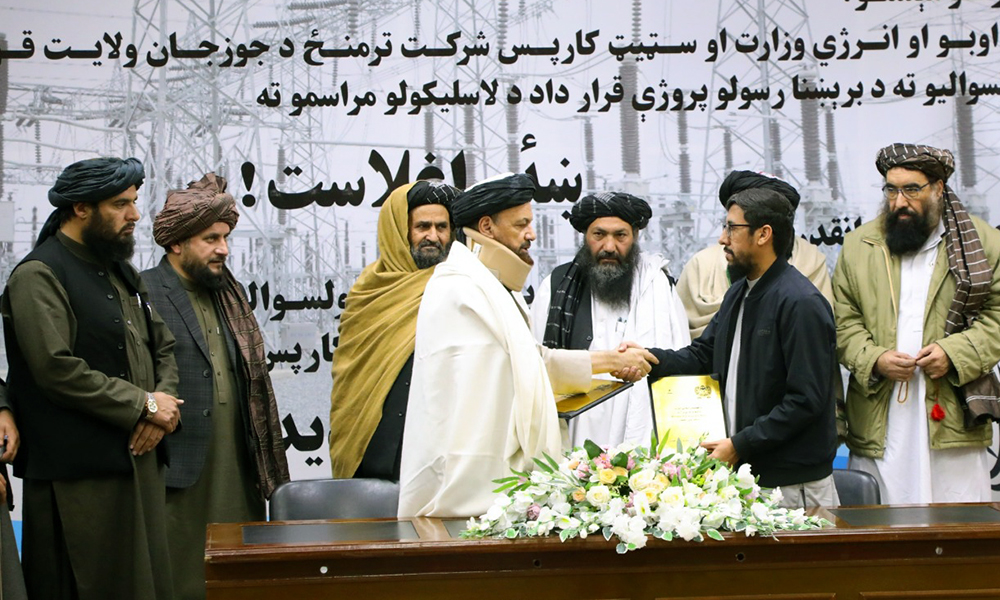
The Ministry of Energy and Water (MoEW) on Tuesday signed a major power supply project worth over 1.8 billion afghanis with domestic firm State Corps to provide electricity to Qush Tepa and Darzab districts in northern Jawzjan province.
The contract signing ceremony, held at the Government Information and Media Centre, was attended by Deputy Prime Minister for Economic Affairs Mullah Abdul Ghani Baradar and senior government officials.
Mawlawi Abdul Rahman Rahmani, Director General of Renewable Energy at MoEW, said the $28.4 million project (equivalent to 1.886 billion afghanis) aims to ensure nearly all households in Qush Tepa and Darzab have access to electricity.
He explained that the project involves constructing an 85.4-kilometre transmission line from Shiberghan, the provincial capital, building substations, and establishing electricity distribution networks in both districts.
Alauddin Salim, representing State Corps, described the initiative as “crucial” and said it is expected to be completed within three years. He highlighted that domestic firms, like State Corps, are more committed than foreign companies to project delivery.
According to MoEW, the project will be funded through revenues from Afghanistan’s mines and will provide electricity to around 47,000 families. The ministry urged the company to ensure timely completion with high quality standards.
Latest News
Pakistani cleric condemns lifetime immunity for Army Chief as un-Islamic
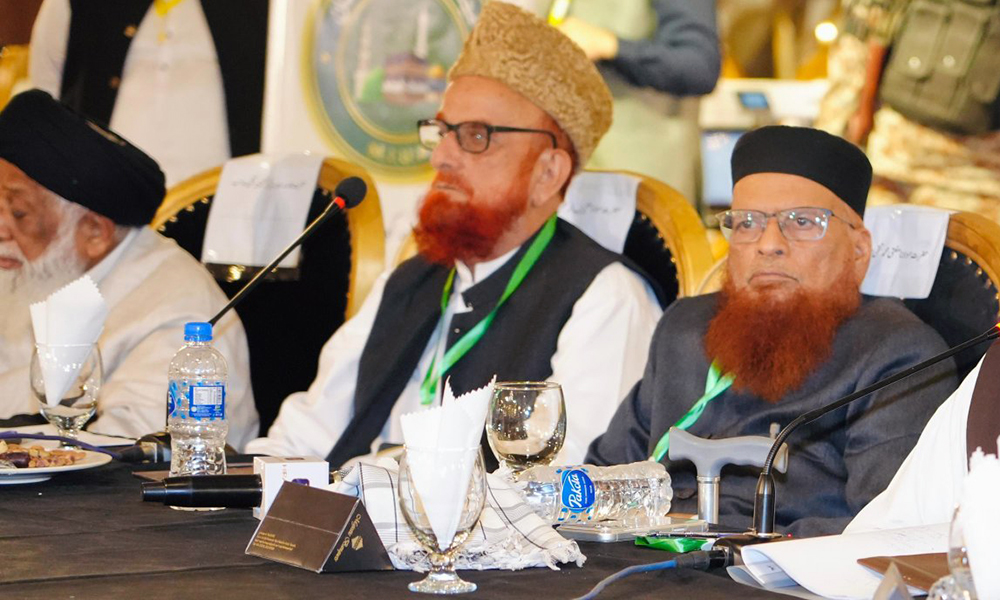
Prominent Pakistani religious scholar Mufti Taqi Usmani has strongly criticised moves to grant lifetime immunity to Pakistan’s Army Chief, General Asim Munir, describing such protection from judicial accountability as contrary to Islamic principles.
Speaking at a public gathering on Monday, Mufti Usmani said that Islam does not place any individual above the law, stressing that rulers, military leaders and ordinary citizens are equally accountable for their actions. He emphasised that justice and accountability form the foundation of an Islamic system, and that permanent immunity for powerful figures violates the spirit of Sharia.
The cleric warned that creating legal distinctions between state officials and the general public undermines public trust and fosters injustice within society. He urged state institutions to adhere to Islamic values when making political and military decisions, particularly those affecting governance and accountability.
Mufti Usmani’s remarks come amid growing debate in Pakistan over the role of the military in state affairs and the expanding authority granted to senior army officials. The issue has drawn heightened public and political attention in recent weeks, with critics arguing that excessive protections weaken democratic institutions and the rule of law.
-

 Latest News2 days ago
Latest News2 days agoAfghanistan signs 30-year deal for marble mining in Daikundi
-

 Latest News4 days ago
Latest News4 days agoAfghan border forces prevent illegal entry of hundreds into Iran
-

 Latest News4 days ago
Latest News4 days agoPakistan summons Afghan diplomat over deadly attack in North Waziristan
-

 Latest News3 days ago
Latest News3 days agoAfghan health minister calls for medical cooperation between Kabul and New Delhi
-

 Latest News4 days ago
Latest News4 days agoJapan allocates nearly $20 million in humanitarian aid for Afghanistan
-

 Latest News3 days ago
Latest News3 days agoKarzai urges reopening of girls’ schools and universities for Afghanistan’s bright future
-

 Latest News3 days ago
Latest News3 days agoBush Institute criticizes Trump administration’s Afghan immigration freeze
-

 Health5 days ago
Health5 days agoIndia issues over 200 medical visas to Afghans in last four months






